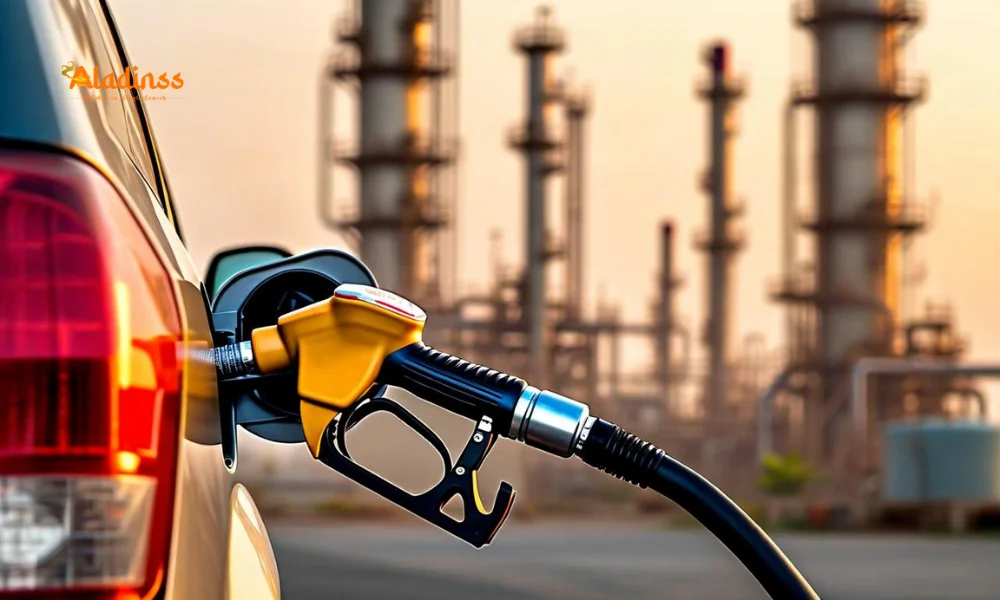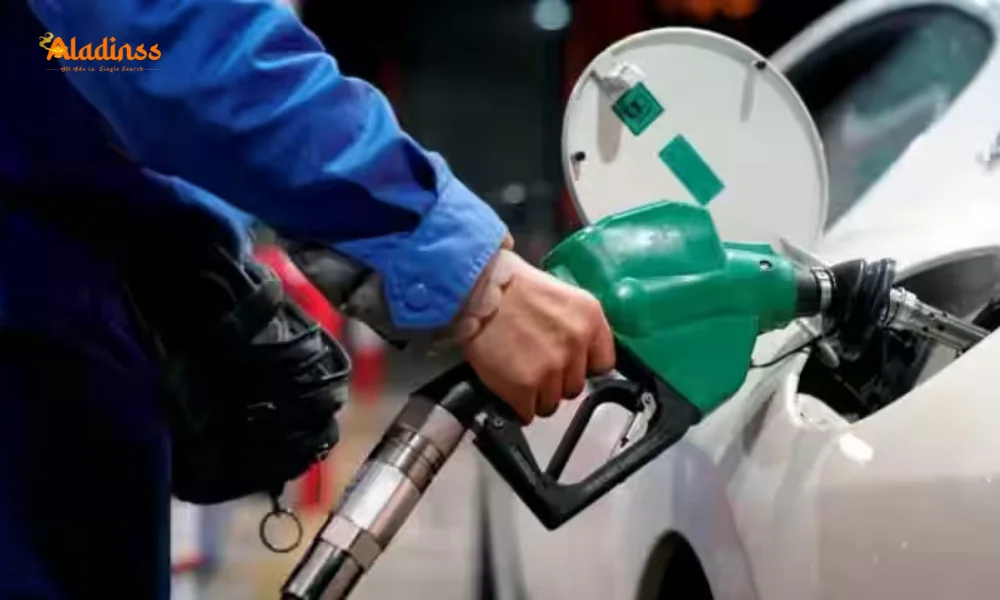Nitin Gadkari Announces Isobutanol for Diesel After Ethanol Blending Failure

Nitin Gadkari Announces Isobutanol for Diesel After Ethanol Blending Failure
In a significant development for India’s biofuel strategy, Union Minister for Road Transport and Highways, Nitin Gadkari, has announced a shift to blending isobutanol with diesel following the failure of ethanol-diesel blending experiments. This breaking news was revealed during a recent bio-energy conference, where Gadkari addressed the challenges and future directions of India’s sustainable fuel initiatives. The announcement comes amid growing public discourse over the 20% ethanol blending in petrol, which has sparked concerns about vehicle performance, and highlights the government’s commitment to reducing fossil fuel dependency through innovative biofuel solutions.

Background of Ethanol Blending in India
India’s journey with ethanol blending began in 2014, when the blending rate in petrol was a modest 1.5%. The government set ambitious targets to reduce reliance on imported fossil fuels and curb vehicular emissions. By June 2022, the country achieved a 10% ethanol blending rate in petrol, a significant milestone. Currently, India has successfully implemented a 20% ethanol blend, meaning every litre of fuel contains 800 millilitres of petrol mixed with 200 millilitres of ethanol. This achievement, completed five years ahead of the 2030 target, has been lauded as a step toward a greener economy and increased farmer incomes through the use of surplus crops like sugarcane, maize, and rice.
However, the 20% ethanol-petrol blend, known as E20, has faced criticism from vehicle owners who report reduced mileage and performance issues. Social media platforms have been abuzz with complaints, with some users alleging that the blend compromises engine efficiency. Addressing these concerns at the bio-energy conference, Gadkari dismissed the criticism as part of a “planned paid campaign” against the initiative, emphasizing that ethanol blending has significantly reduced pollution and fossil fuel dependency. He underscored the need to focus on scientific evidence and the broader benefits of biofuels for India’s economy and environment.
Why Ethanol-Diesel Blending Failed
While ethanol blending has proven successful in petrol, experiments to blend 10% ethanol with diesel were unsuccessful. Gadkari revealed that the trials, aimed at extending the biofuel program to diesel, did not yield satisfactory results due to technical challenges. Diesel, which accounts for approximately 40% of India’s crude oil consumption, is critical to the nation’s economy, powering trucks, tractors, and construction equipment. According to the Petroleum Planning and Analysis Cell (PPAC), diesel consumption rose by 2% in the financial year 2024-25, reaching 91 million tonnes, with projections of a 3% increase to 94.1 million tonnes in 2025-26.
The failure of ethanol-diesel blending prompted the government to explore alternative biofuels. Ethanol’s lower energy density and corrosive properties make it less compatible with diesel engines, leading to issues like poor combustion and potential engine wear. These challenges necessitated a shift to a more viable option, paving the way for isobutanol as a promising substitute.
Isobutanol: The New Biofuel Frontier
Isobutanol, a biofuel derived from ethanol through fermentation, has emerged as a more suitable candidate for diesel blending. Unlike ethanol, isobutanol boasts a higher energy density and lower corrosiveness, making it compatible with existing diesel engines without requiring significant modifications. Gadkari announced that the Automotive Research Association of India (ARAI) is currently testing a 10% isobutanol blend with diesel, with plans to explore its potential as a standalone fuel or in higher blending ratios, including up to 100% isobutanol for specialized engines.
The minister highlighted that isobutanol’s properties make it an engine-friendly alternative, offering improved thermal efficiency, reduced fuel consumption, and cleaner combustion. Laboratory studies indicate that isobutanol blends can lower particulate emissions and toxic exhaust outputs like carbon monoxide and unburnt hydrocarbons. However, a slight increase in nitrogen oxide (NOx) emissions may require exhaust after-treatment systems to meet stringent emission standards. These advantages position isobutanol as a key player in India’s sustainable fuel strategy, particularly for diesel-heavy sectors like transportation and agriculture.
Economic and Environmental Benefits
The shift to isobutanol aligns with India’s broader goals of reducing fossil fuel imports and boosting rural economies. Gadkari emphasized that India’s surplus production of crops like rice, wheat, sugarcane, and corn can be leveraged to produce biofuels, providing farmers with stable and higher incomes. The ethanol blending program has already increased corn prices in states like Bihar and Uttar Pradesh from ₹1,200–1,800 to ₹2,600–2,800 per quintal, tripling crop acreage and stabilizing the sugar industry by enabling timely payments to sugarcane farmers.
Isobutanol production could yield similar benefits, creating new markets for agricultural byproducts and reducing India’s ₹22 lakh crore annual fossil fuel import bill. Additionally, biofuels contribute to lower carbon emissions, supporting India’s commitment to a low-carbon economy. The success of ethanol blending, which has saved ₹1.44 lakh crore in foreign exchange over the past 11 years, underscores the potential of isobutanol to further these gains, particularly in the diesel sector, which consumes two to three times more fuel than petrol.
Industry and Policy Developments
Gadkari’s announcement has garnered support from industry stakeholders, including agricultural equipment manufacturers and biofuel innovators like Praj Industries, which has launched the BioVerse initiative to advance India’s bio-economy. Companies like Kirloskar have developed engines capable of running on 100% isobutanol, signaling the potential for widespread adoption. The government is working with ARAI to establish standards for isobutanol blending, ensuring that the fuel meets safety and performance requirements before a nationwide rollout.
The proposal for 10% isobutanol blending will be submitted to the Prime Minister and the Cabinet for approval once testing is complete. Inter-ministerial consultations with the oil and heavy industries ministries are underway to develop a roadmap for implementation. The initiative also extends to the construction equipment sector, which consumes 3-4% of India’s diesel, with plans to introduce flex-fuel engines capable of running on various isobutanol-diesel combinations.
Public and Industry Reactions
The shift to isobutanol has sparked varied reactions. While environmentalists and farmers’ groups welcome the move for its potential to reduce emissions and boost rural incomes, some vehicle owners remain skeptical, citing concerns from the ethanol blending experience. Social media discussions highlight fears of mileage drops and engine compatibility, though automakers and oil companies argue that isobutanol’s properties mitigate these issues. The government has defended its biofuel strategy, noting that mileage reductions are marginal and depend on factors like vehicle condition and driving habits.
The announcement marks a pivotal moment in India’s clean energy journey, blending agricultural innovation with environmental goals. As testing progresses, the nation awaits further updates on how isobutanol will shape the future of diesel-powered vehicles and contribute to a sustainable Bharat.
Comment / Reply From
No comments yet. Be the first to comment!











